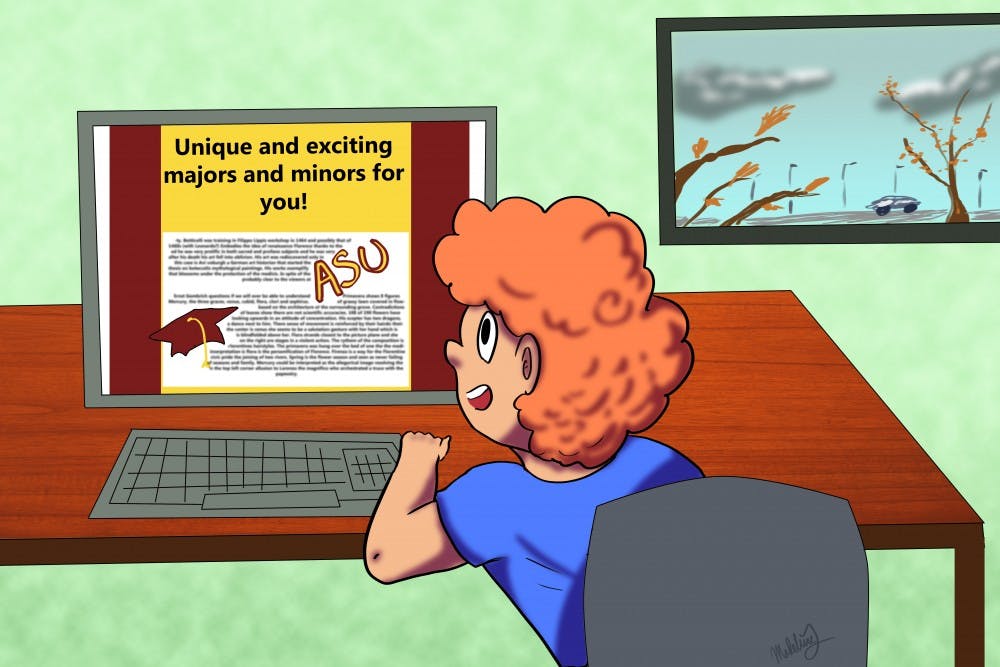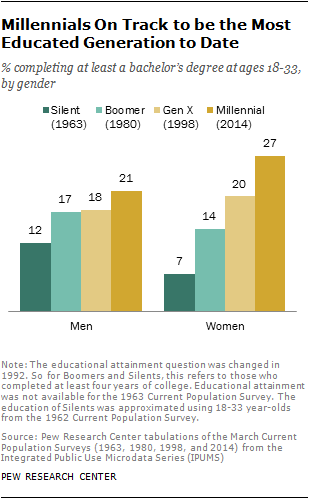Millennials represent the most educated generation. According to the Pew Research Center, in 2014, the percentage of individuals completing at least a bachelor's degree was at an all-time high.
The downfall to this is that a once highly-valued bachelor's degree is now viewed as an entry level requirement for most careers.
With almost one-third of ASU undergraduates enrolled in liberal arts and sciences programs and 13,042 undergraduate business majors enrolled in 2016, students must differentiate themselves. Declaring a minor could help students avoid becoming carbon copies of one another.
In 2015, Millennials surpassed every other generation in the work force, now representing the largest group eligible to work, so the need for specialization is more essential now than ever.
“I think that that concept of what a minor could add is a great idea, and it’s really about how do you show that I’m unique or have something additional to offer, and I think that can happen a variety of ways,” Mary Dawes, director of major and career exploration at ASU, said. “In addition to a central focus, having another area that gives you additional tools and skills and competency that makes you unique is a good idea.”
Most undergraduate minor programs typically require around 12 credits, which is usually an additional four classes spaced throughout one's bachelor’s degree coursework.
Students can select a minor that directly relates to their major or pursue an alternate area of academia they are interested in.
Some say that it is imperative to stay focused on one major and adding a minor would divert attention from the main area of study. However, this is not always the case.
“This idea of having a minor helps you to kind of focus it in, because you’re going to have to sell yourself when you’re done," Dawes said. "You’re going to have to say what makes (you) the best employee or what makes (you) a person with skills (an employer) wants to hire.”
Although the U.S. unemployment rate is decreasing, the job market is more competitive than ever. When so many college graduates are applying for the same position, it is important that they find ways to distinguish themselves from other candidates.
Most potential employers look at resumes first, and interviews are never guaranteed. Therefore, if a student's resume is too similar to everyone else's, he or she may not get the chance to do an interview.
This is where specialization truly shines. Whether it is a foreign language minor, a sustainability minor, an economics minor or one of the other hundreds of minors ASU offers, everyone's resume can benefit from the extra specialty.
College is a huge investment, and students must showcase their specific skills and use them to their advantage.
Reach the columnist at hncumber@asu.edu or follow @hncumber on Twitter.
Editor’s note: The opinions presented in this column are the author’s and do not imply any endorsement from The State Press or its editors. Want to join the conversation?
Send an email to opiniondesk.statepress@gmail.com. Keep letters under 500 words and be sure to include your university affiliation. Anonymity will not be granted. Like The State Press on Facebook and follow @statepress on Twitter.





